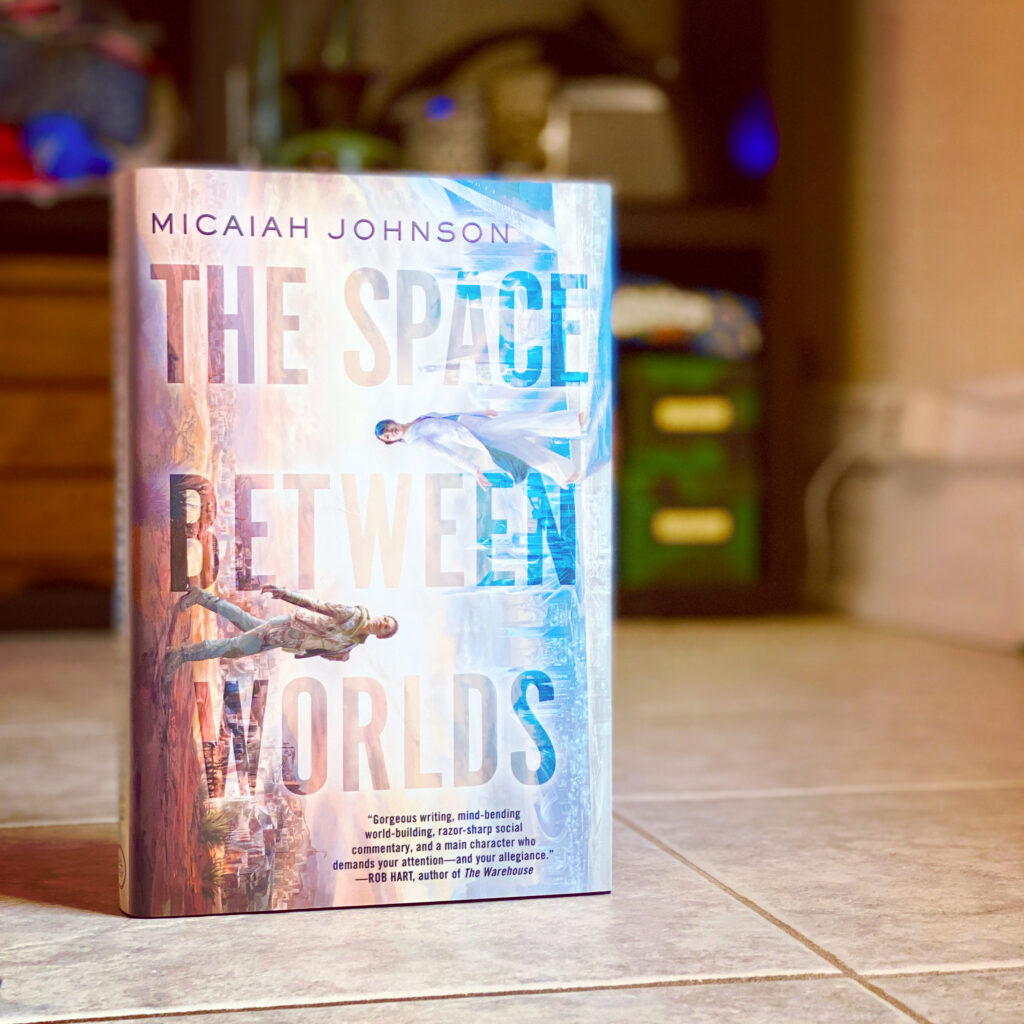
Science fiction. Future earth, a couple of generations post apocalypse. There are the walled cities where the privileged live in carefully controlled environments of plenty and ease, their security ensured by jealously guarded gates and the invisible violence of citizenship, and there are the settlements beyond the cities where everything has a Mad Max-like vibe. In one city, a scientist has discovered how to send people to alternate earths – only to the few hundred earths most similar to this one, though, and you can only go to an earth where the you on that earth has already died. The main character is a woman from the settlement beyond the gates of the city where this discovery was made, whose selves in almost all of the other worlds have died while she has survived. She is employed by the corporation monetizing this discovery as what they call a “traverser,” to make regular trips to these other worlds to bring back information from which they find ways to profit. Finding out that one more of her alternate selves has died, thus opening up yet another world that her employer can send her to, starts a journey of discovery and upheaval that transforms her life, shifts her relationships, and reveals nefarious, world-shaking truths.
The world beyond the walls of the city is quite brutal and the main character’s life before she was hired to be a traverser was grim, and that is certainly reflected in the feel of the book. The worldbuilding is clever, but unlike a couple of other books I’ve read in the last year or two with analogous use of concept-y sci-fi worldbuilding, this one doesn’t attempt to use that cleverness to prop up so-so storytelling – the story is, in fact, engaging and well told. As you might expect, it uses its alternate worlds premise to explore what chance and luck and choice can do to a life, in the context of various forms of marginalization or advantage. But what is perhaps more interesting is its use of the stark social division between city and settlement, and the experience of the main character as connected to both but not really belonging in either, as a way to explore…well, to explore belonging certainly, but also the ways in which we are shaped by deprivation and plenty and the desire for a better life. Took a little for me to warm up to it, but ultimately liked it.
Originally posted by Scott on Goodreads.